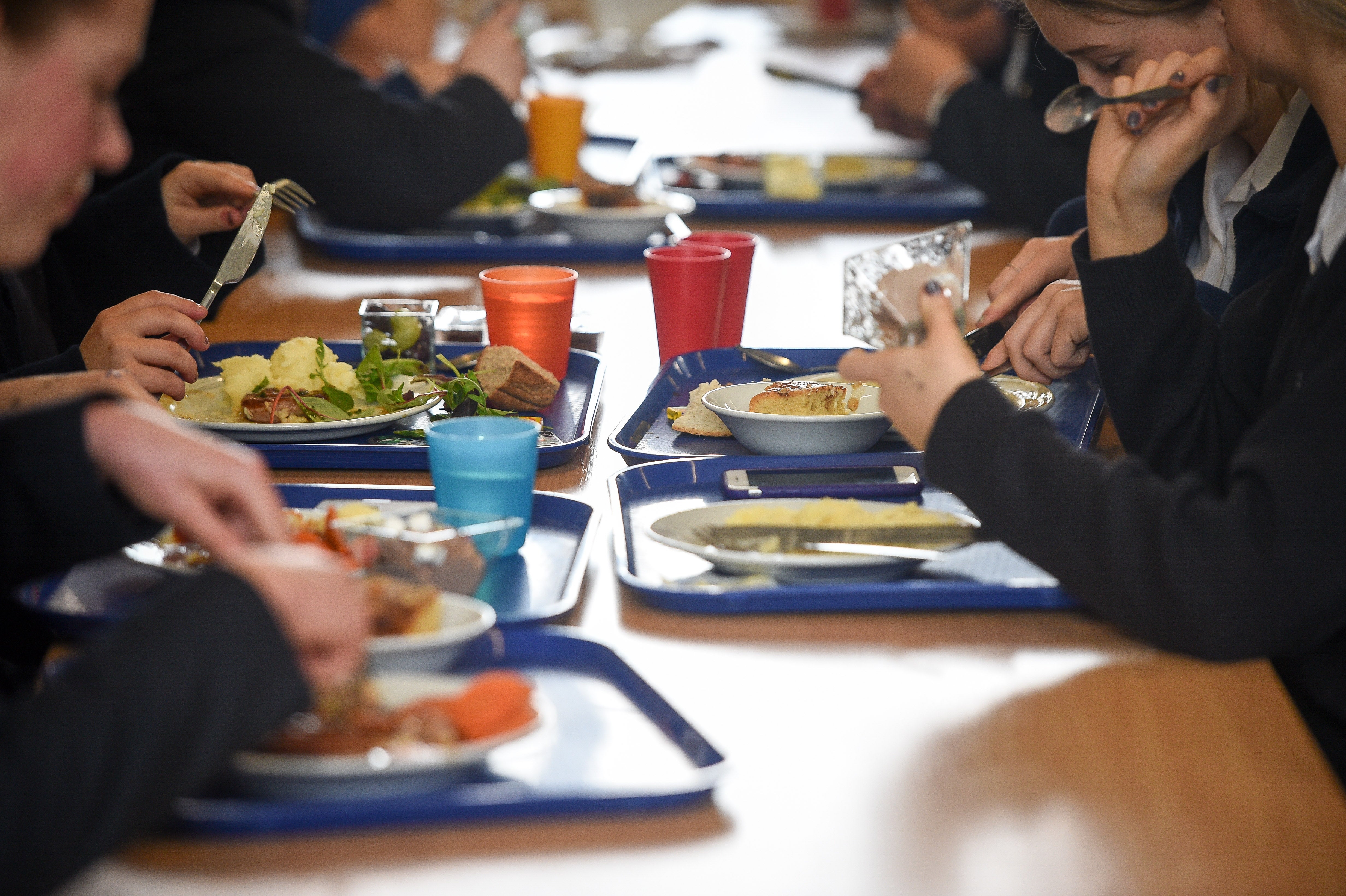Poorer families buying less fruit and veg with three million children in food poverty, report finds
‘Health emergency’ as children miss out on fruit and veg and substitute it for cheaper ultra-processed food
Your support helps us to tell the story
From reproductive rights to climate change to Big Tech, The Independent is on the ground when the story is developing. Whether it's investigating the financials of Elon Musk's pro-Trump PAC or producing our latest documentary, 'The A Word', which shines a light on the American women fighting for reproductive rights, we know how important it is to parse out the facts from the messaging.
At such a critical moment in US history, we need reporters on the ground. Your donation allows us to keep sending journalists to speak to both sides of the story.
The Independent is trusted by Americans across the entire political spectrum. And unlike many other quality news outlets, we choose not to lock Americans out of our reporting and analysis with paywalls. We believe quality journalism should be available to everyone, paid for by those who can afford it.
Your support makes all the difference.Poorer families are buying less fruit and vegetables than normal as they struggle to afford basic necessities, new research has found.
Data from The Food Foundation charity has shown that 60 per cent of food insecure households surveyed last month said they are buying less fruit than they do usually. Some 44 per cent also said they were buying fewer vegetables than normal in January 2024.
This compares to 11 per cent of families who are classed as food secure saying they are cutting back on fruit, and 6 per cent who are cutting back on vegetables.
Boris Johnson’s former food tsar Henry Dimbleby said that, while inflation is subsiding, “the situation is still dire” for millions of children and their struggling families. He also said the lack of healthy food was a “health emergency”.
To assess whether people were food insecure, researchers asked people whether they had skipped or had smaller meals because they couldn’t afford them. They asked if they had been hungry and not eaten because they couldn’t afford or get access to food, and asked if they had not eaten for a whole day because of this.

If they met these criteria, then they were classed as food insecure. The Food Foundation found that in January 2024, 15 per cent of UK households were living in food insecurity – equivalent to eight million adults and three million children.
Twenty per cent of families with children were living in food insecurity, the survey found. The levels of food poverty are twice as high as they were in 2021, the charity found.
Households struggling with food bills also reported buying less fish, dairy and eggs.
Although food inflation is now falling, prices are still high compared to 2021. The price of an average weekly food shop has increased by 24-26 per cent since April 2022, according to the charity’s basic basket tracker.
An average weekly food basket for a man has gone up from £43.52 to £54.64 and from £40.96 to £50.77 for a woman.
This echoes recent data from the Office for National Statistics, which found that four in 10 adults surveyed at the end of January 2024 said they were buying less food when shopping in the last two weeks.
The rising cost of food was the most commonly reported reason among 49 per cent of adults who said their living expenses had risen compared with a month ago, the ONS found.
Added to this, around one in 25 adults reported that their household had run out of food and could not afford to buy more in the past two weeks, according analysis of ONS data from October 2023 to the end of the year.

Anna Taylor, executive director at The Food Foundation, said: “Often products with the worst health credentials that are high in fat, salt and sugar, or ultra-processed are the cheapest option for those who are struggling to afford food to feed themselves or their families.
“We’ve seen that for this group, fruit and veg is often the first thing to be sacrificed.”
Dr Camilla Kingdon, president of the Royal College of Paediatrics and Child Health, said that the data was “deeply worrying”, adding: “When I talk to parents, they already know what food will provide their children with the best nutrition – but so many consistently report how expensive it is to buy fruit and veg.
“Parents are often left with no option other than to buy cheaper highly processed food that is high in both salt and sugar.
“Child health outcomes are worsening across the board and I have no doubt that food scarcity and subsequent poor nutrition play a big role in this.”
Mr Dimbleby, author of the National Food Strategy, added: “Even though inflation is subsiding, it remains much more expensive than it was. The situation is still dire with three million children living in households that are cutting back on fruit and veg. This is a health emergency which will leave a long shadow on public health into the future.”
Survey results also showed that 45 per cent of households in receipt of universal credit reported not having enough money to feed themselves properly. Food insecurity was also highest in disabled households, single-parent homes and ethnic minorities.
The Food Foundation surveyed over 6,000 adults.

Join our commenting forum
Join thought-provoking conversations, follow other Independent readers and see their replies
Comments